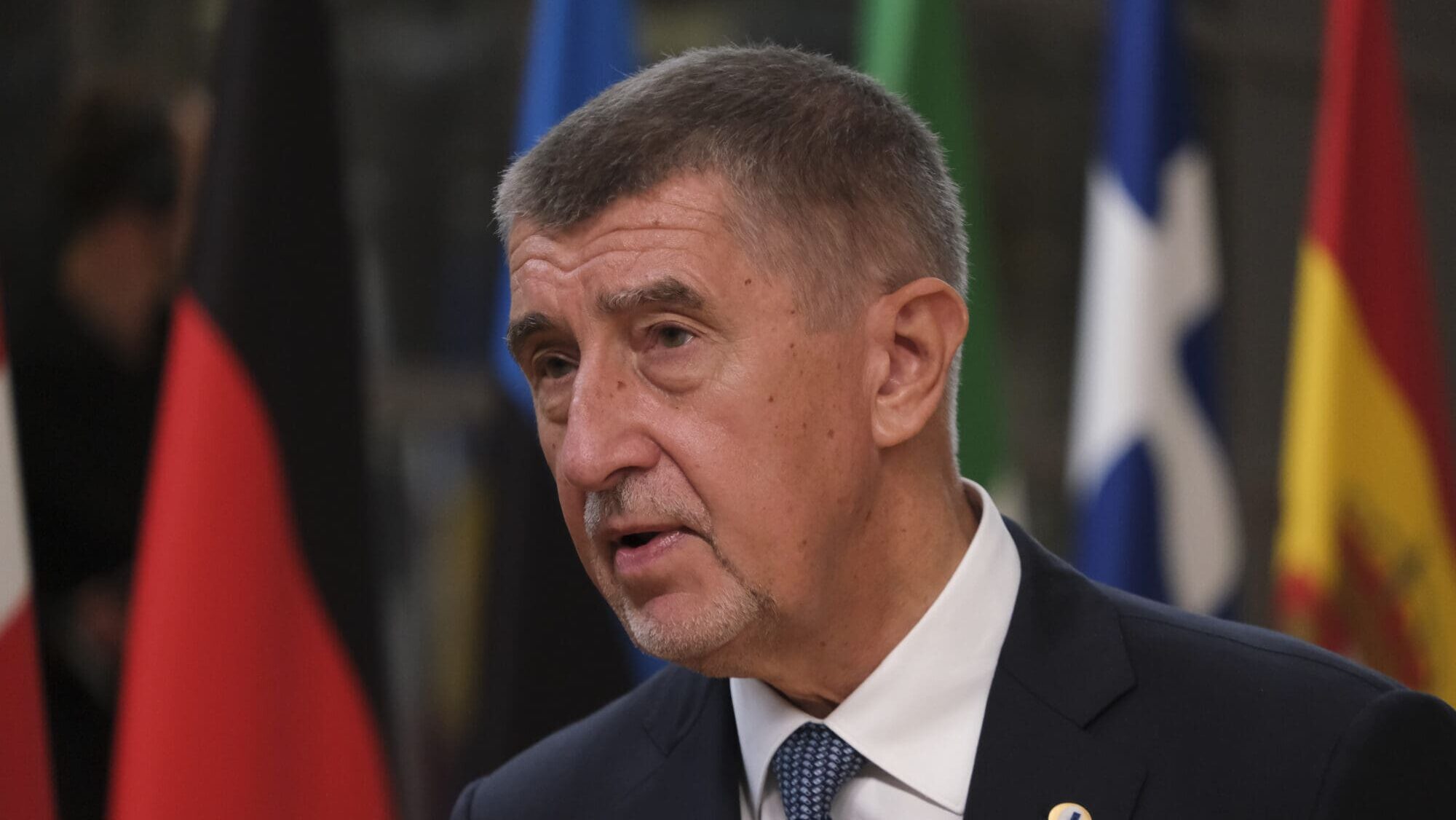
Former Czech PM and ANO leader Andrej Babiš in the European Council.
Photo: © European Union
Major reshuffling ahead of the next parliamentary term is not exclusive to the right-wing groups in Brussels. Emmanuel Macron’s liberal Renew Europe group has just lost seven seats after the departure of the former Czech PM Andrej Babiš’ populist ANO 2011 party in addition to the Macron Renaissance party’s own poor electoral performance. Meanwhile, the European Greens/European Free Alliance (EFA) group has grown by five, drawing in MEPs from the pan-European federalist Volt party.
All leftist groups have lost seats in the European elections, but the Renew and the Greens were the hardest hit, both losing around 20 MEPs after the initial tally.
The liberal Renew group—led by Emmanuel Macron’s party—even lost its prestigious spot as the third largest group in the European Parliament (EP) last week when the European Conservative and Reformist (ECR) group overtook it by growing to 83 seats in total, with the admission of a dozen new MEPs from five delegations.
Now Renew has begun to shrink even further, as the former Czech prime minister Andrej Babiš announced that he was withdrawing his liberal-conservative populist ANO party and its seven MEPs from the group because their values are no longer aligned, leaving Renew with only 74 seats.
“We are leaving Renew because we cannot fulfill our program there. And we don’t want to betray our voters,” MEP Ondřej Knotek said after a press conference on Friday.
During his premiership, Babiš maintained a good relationship with national conservative governments, such as those led by Poland’s Law and Justice (PiS) or the Hungarian Fidesz party. He has long been expected to break away from Renew because of their diverging political positions.
After winning the EU elections by gaining seven seats—more seats than the governing center-right coalition in its entirety—Babiš has set his sights on reclaiming the government in the next general elections in 2025 as well. Babiš’ strategy is to continue siphoning off the mild Eurosceptic voters from PM Fiala’s national conservative ODS party (ECR), the largest of the current coalition—and ANO couldn’t do that with Renew breathing down its neck.
For instance, Babiš has become increasingly critical of the Green Deal and the Migration Pact, two flagship policy packages that have been primarily shaped by the EP’s ‘Ursula coalition,’ EPP, S&D, and Renew.
“We went to the elections to fight illegal migration, to change the Green Deal, which is destroying our European industry and agriculture and is having a negative impact on our citizens,” Babiš said on Friday.
For what it’s worth, Renew is trying to paint the break-off as a positive development, even though it desperately needs its remaining MEPs to keep its former influence in Brussels. “This was a divorce that was long overdue. ANO has chosen a populist path that is incompatible with our values and identity,” Renew President Valérie Hayer replied in a statement.
For example, there has been growing internal pressure to kick out the former Dutch ruling party, VVD, for entering into a coalition with Geert Wilders’ national conservative PVV a few weeks ago. But since Renew can no longer afford to further diminish its ranks, it has decided instead to just send ‘observers’ to ensure the party will remain true to the group’s liberal values.
As for ANO, there is no information about which group the party will try to join yet. Some speculated that Babiš would aim for the ECR—but since his main domestic rival, Fiala’s ODS, didn’t make the expected switch to EPP, Babiš was forced to rule out ECR as an option.
Díky vašim hlasům jsme vyhráli evropské volby, moc vám děkuji za podporu. Odešli jsme z frakce Renew Europe i ALDE, protože nám nejde o funkce. Jde nám o to, abychom mohli plnit náš program. Tak nám držte palce, aby to dobře dopadlo. O hnutí ANO v Evropě ještě uslyšíte. pic.twitter.com/iNPek3lM4Z
— Andrej Babiš (@AndrejBabis) June 24, 2024
Meanwhile, the Renew group suffered another blow by losing a prospective member to the Greens.
The progressive liberal, Eurofederalist, pan-European Volt announced on Monday, June 24th, that it will be joining the Greens/EFA group after 87% of its members chose it over the Renew in a four-day internal vote.
“[The MEPs] accept the members’ decision and celebrate how this process embodies Volt’s commitment to a participatory, bottom-up approach, ensuring every member’s voice is heard and valued,” the party said in its statement.
Despite standing for election in 15 EU member states, Volt only managed to win seats in Germany and the Netherlands, three and two, respectively. That’s a four-seat increase compared to 2019.
As a pan-European movement, Volt campaigned by advocating for further centralization and digitalization of public services (“smart state”); transitioning to circular and green economic models; harsher climate policies, and more social equity, with a focus on refugee support and increased labor migration; citizen empowerment through participatory democracy; and—its flagship goal—reforming the EU into a federation with increased responsibility for sub-state actors like regions and cities.
Exciting news! 🌟 After two weeks of intense negotiations, a vote was held among our Volt members. And we are thrilled to announce that our 5 Volt MEPs will join the @GreensEFA group in the European Parliament for the upcoming 5 years! 🇪🇺 pic.twitter.com/MZDqVd40qi
— Volt Europa (@VoltEuropa) June 24, 2024
